A Hong Kong court has upheld a sedition charge against former media mogul Jimmy Lai following the defence’s argument that the charge was laid after a six-month statute of limitations had expired.
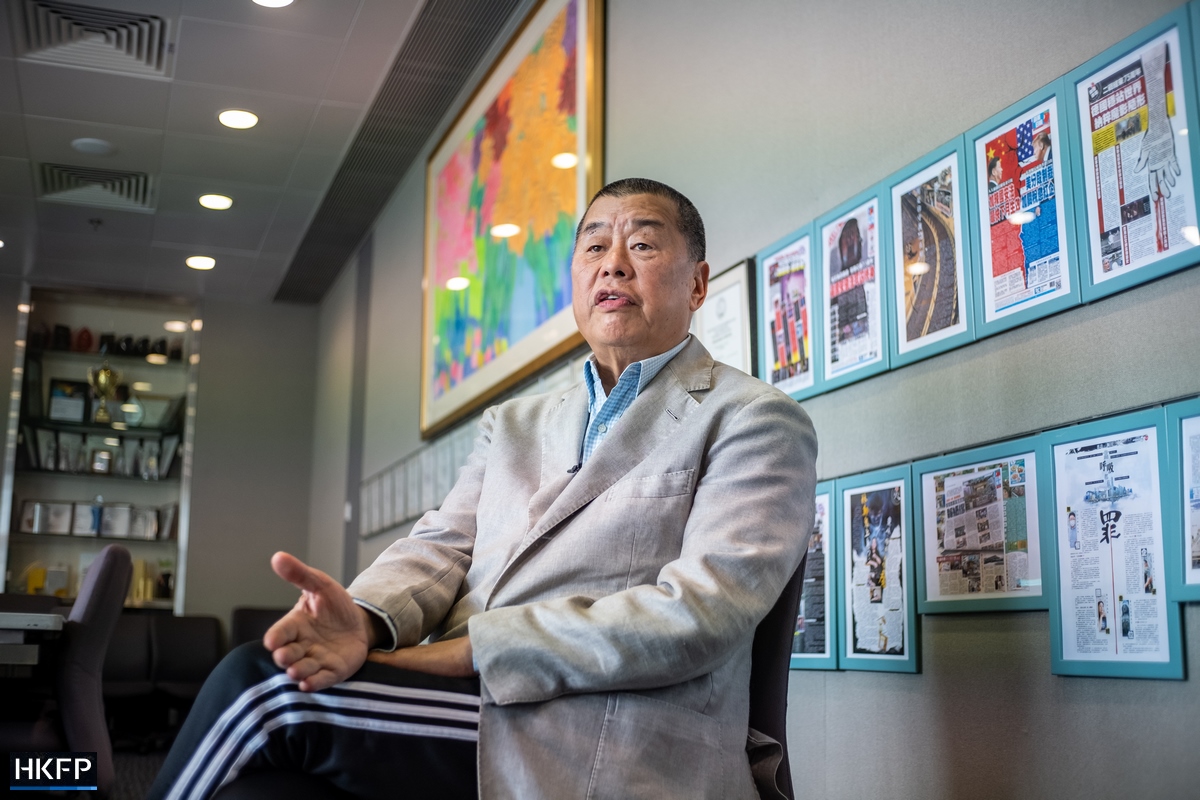
Three handpicked national security judges handed down the decision on the 76-year-old Apple Daily founder on Friday, the third day of the closely-watched trial.
Besides the sedition charge, Lai faces two more serious charges punishable by life imprisonment in his landmark national security trial.
The trial began on Monday with a debate between the defence and the prosecution on whether Lai’s sedition charge was laid too late. By law, the statute of limitations for prosecuting sedition offences in Hong Kong is six months.
The two parties, however, disagree on what the six-month window is and when the prosecution began. The trial was adjourned on Wednesday to give time for the judges to deliver a verdict after hearing the parties’ arguments.
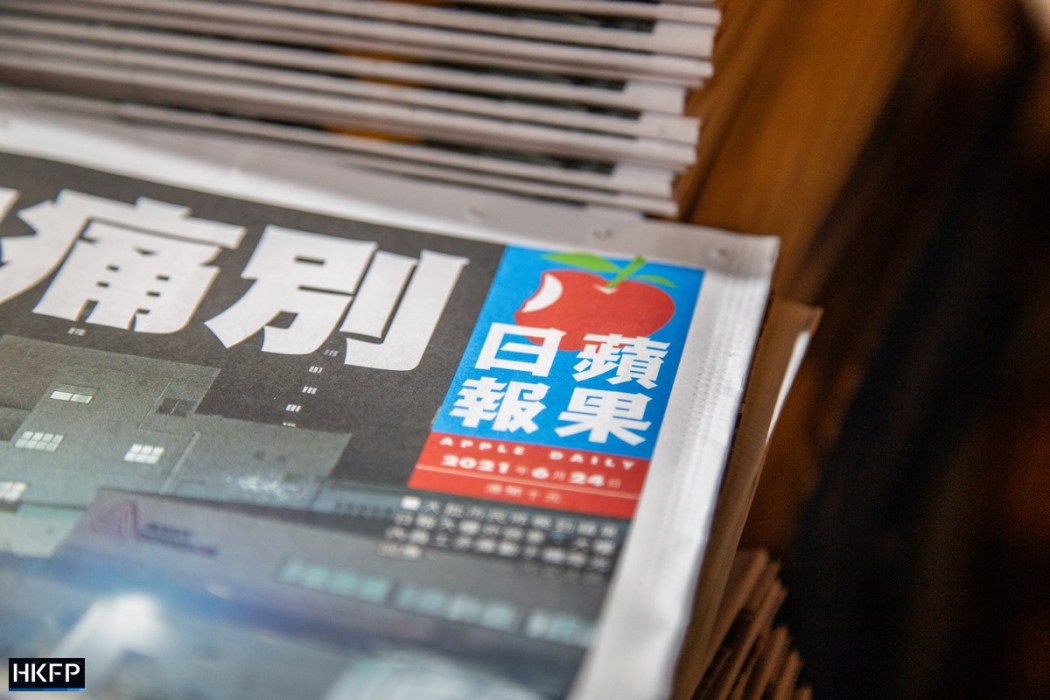
Earlier, the defence said the prosecution procedures began on December 28, 2021, when Lai was brought to court to face the sedition charge. But the prosecution said the charge was filed to the court in mid-December.
The court heard that the window for prosecution expired on December 24, 2021, six months after June 24, 2021, when Apple Daily ceased operations.
On Friday, the judges sided with the prosecution as they handed down the ruling.
“The information of the sedition charge was received by and laid at the West Kowloon magistracy on the 14th of December 2021, 10 days before the 24th of December, 2021, after which the charge would have been time barred,” judge Esther Toh said.
“We are therefore of the view that the charge is not time barred so the application of the defence has failed,” Toh added.
Lai faces two counts of conspiring to collude with foreign forces under the Beijing-imposed national security law, as well as one count of conspiracy to publish “seditious” materials under a colonial-era sedition law.
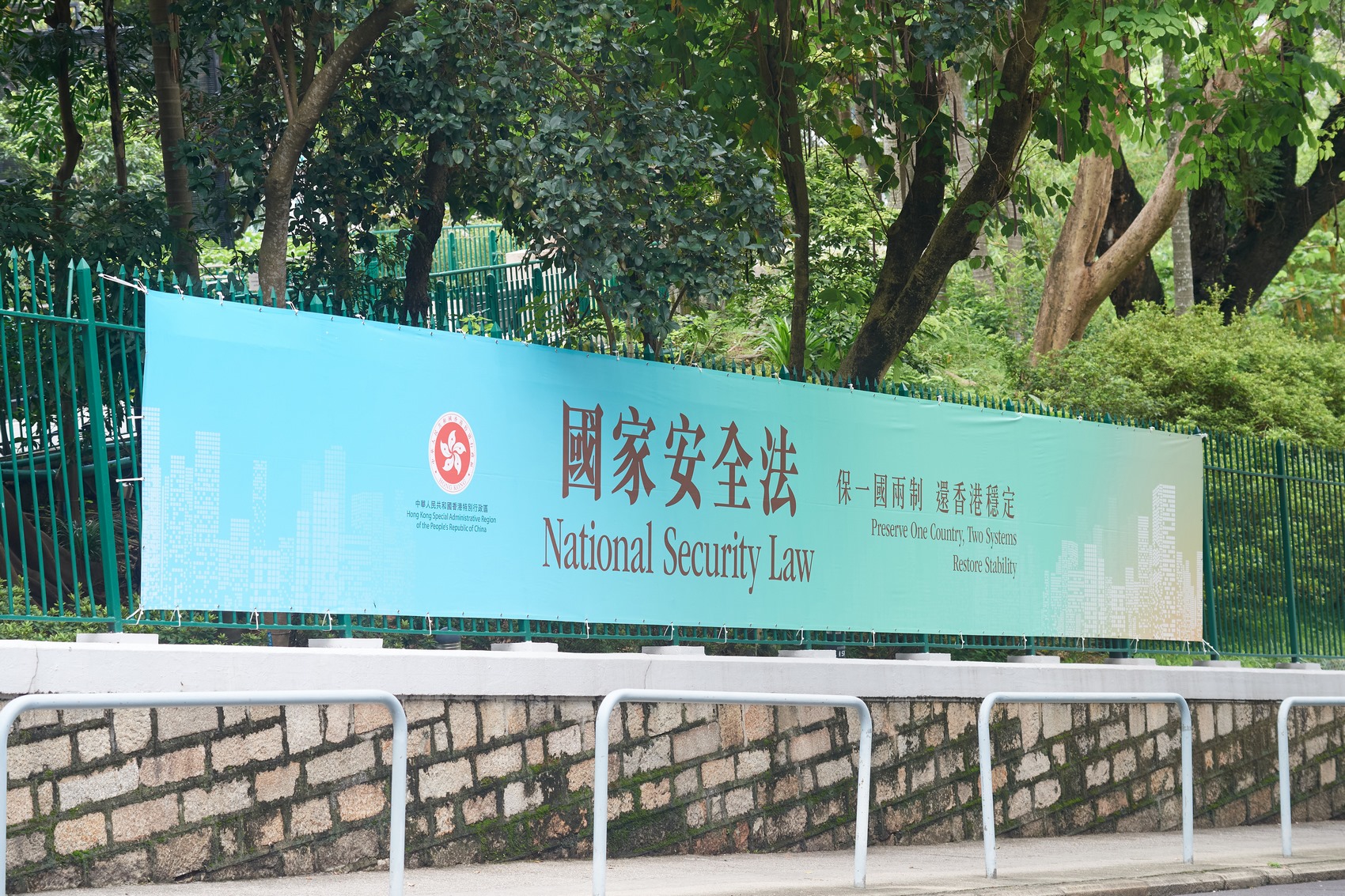
The pro-democracy figure, one of the highest-profile activists to be charged under the national security law, has been detained for over three years since December 2020. Lai is currently serving a five years and nine months sentence in Stanley Prison, a maximum security facility, for a separate fraud case.
Beijing inserted national security legislation directly into Hong Kong’s mini-constitution in June 2020 following a year of pro-democracy protests and unrest. It criminalised subversion, secession, collusion with foreign forces and terrorist acts – broadly defined to include disruption to transport and other infrastructure. Offenders could face up to life imprisonment if convicted.
Since the passing of the national security law, authorities have also begun arresting activists under the long-unused colonial-era sedition legislation. Those convicted under the sedition law face up to two years in prison, but are subject to similarly strict bail restrictions.
The case was adjourned to January 2 next year.
‘Out of time’
Lai’s high-profile trial began on Monday, after a year-long delay partly due to debate over whether the activist was permitted to hire a UK lawyer – King’s Counsel Timothy Owen – not licensed to practice in Hong Kong.
Much of the hearings so far have been spent discussing the sedition charge and the six-month statute of limitations.
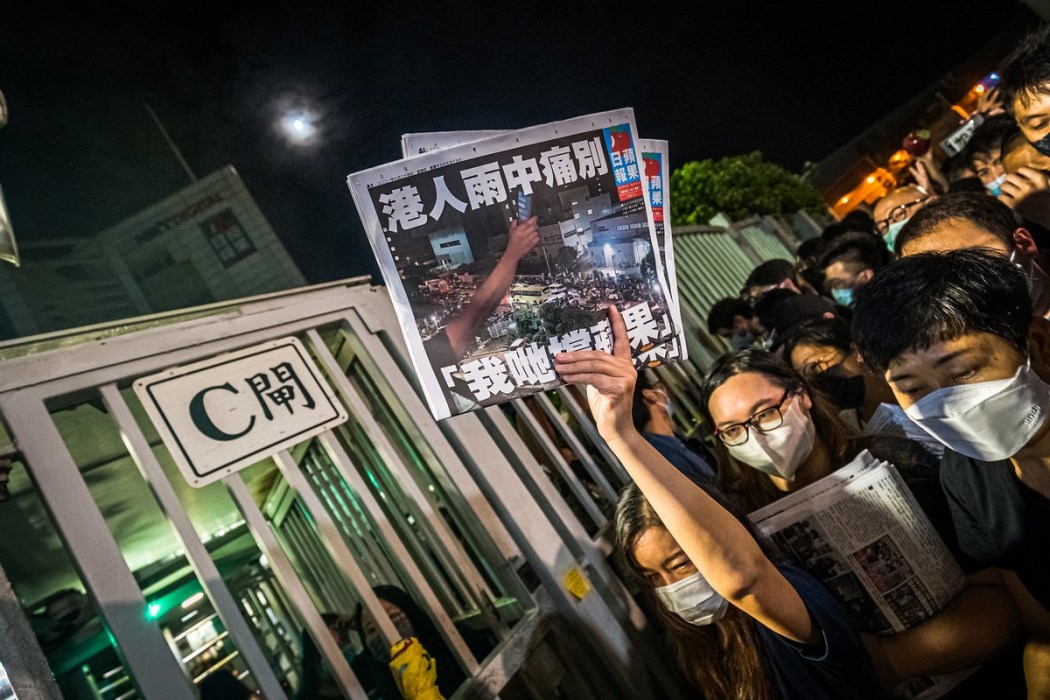
On Tuesday, defence lawyer Robert Pang continued his argument that the sedition charge should be dismissed because the prosecution had failed to lay the charge within the six-month window the prosecution was asserting.
According to the prosecution’s case, the alleged conspiracy to publish seditious materials took place between April 1, 2019, and June 24, 2021, when Apple Daily ceased publication following a police raid and the arrest of top executives. That would put the six-month prosecution window from June 24 to December 24, 2021.
But Pang said Lai was only taken to court on December 28, 2021 in relation to the sedition charge, four days outside of the window.
Pang also emphasised his argument from Monday, that the six-month prosecution window began on April 1, 2019 – when the first allegedly seditious article was published – and hence would have ended on October 1, 2019.
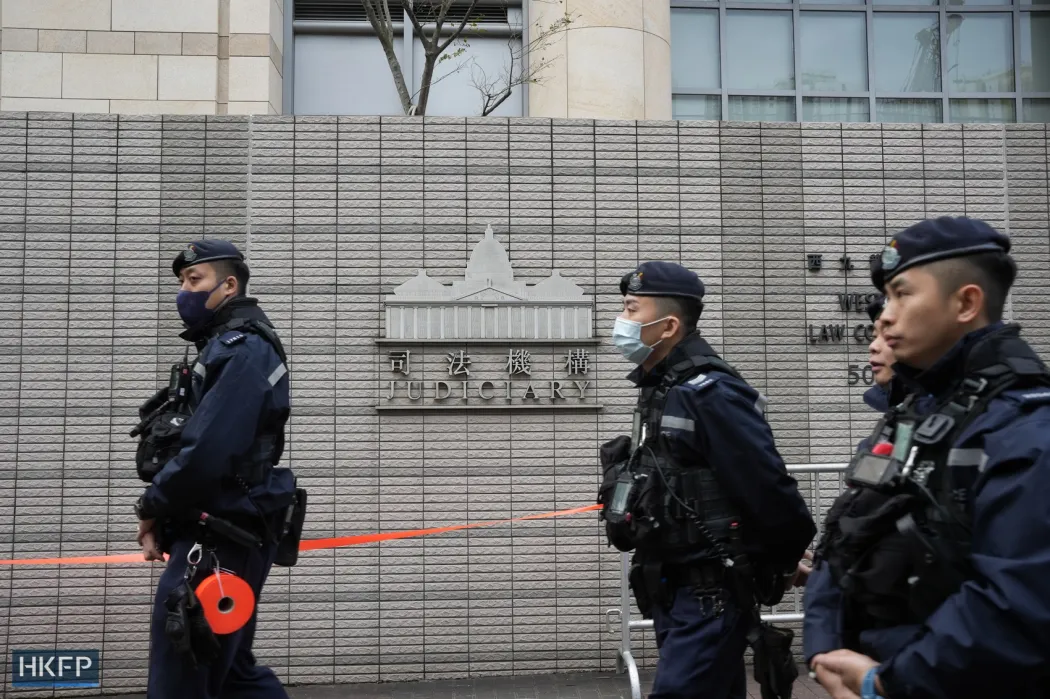
Chau added that the defence argument that prosecution only begins when a defendant is brought to the court would make it “impracticable,” citing a situation where a defendant was not in Hong Kong.
Chau also said Pang’s assertion that the six-month time frame began on April 1, 2019, was “absurd,” as it would make the case “fragmented” and fail to reflect the overall criminality of the offence.
Unanimous decision
According to the written judgement, all three judges presiding over Lai’s case arrived at the decision unanimously.
“[In] the circumstances of this case the limitation of time should start to run on 24 June 2021[,] the last date of the charge ,so that the prosecution of the defendants would be time-barred after 24 December 2021,” the judgement read.
The judges also said it was unable to accept the defence’s argument that a conspiracy is “consummated” – or ends – upon the commission of the first substantive offence. Pang had made this argument in suggesting that the time bar should have run from April 1, 2019, the first date of the alleged conspiracy.
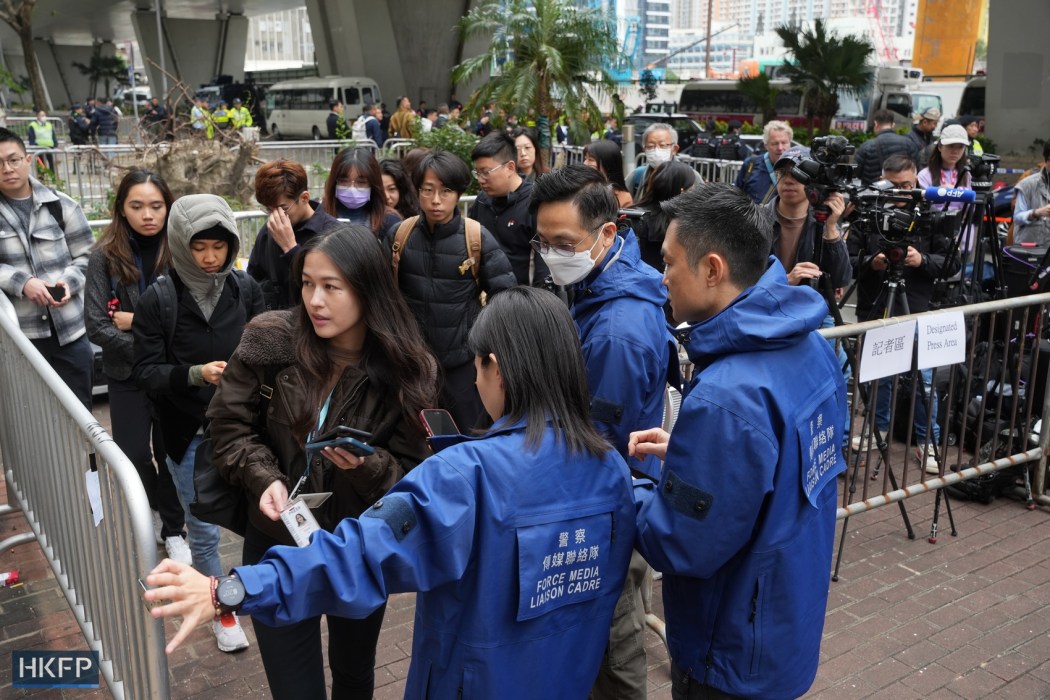
Lai’s high-profile trial, seen globally as a bellwether for press freedom in Hong Kong, is expected to last 80 days. The trial has seen reporters and members of the public line up for tickets to the main courtroom in the early hours of the morning. Besides the main courtroom, the Judiciary has made available court extensions that broadcast the proceedings live.
Representatives from international press freedom watchdog Reporters without Borders (RSF) were among those present on the first day of the trial. In a statement, the watchdog said the “world was watching and will not turn a blind eye to a miscarriage of justice.”
The United States, Britain and the European Parliament, along with international rights groups, have called for Lai’s release.
The government, however, said in a statement on Monday that law enforcement actions are based on evidence and have “nothing to do with freedom of the press, or the background of any person or organisation.”
Support HKFP | Policies & Ethics | Error/typo? | Contact Us | Newsletter | Transparency & Annual Report | Apps
Help safeguard press freedom & keep HKFP free for all readers by supporting our team

LATEST FROM HKFP
HKFP has an impartial stance, transparent funding, and balanced coverage guided by an Ethics Code and Corrections Policy.
Support press freedom & help us surpass 1,000 monthly Patrons: 100% independent, governed by an ethics code & not-for-profit.










